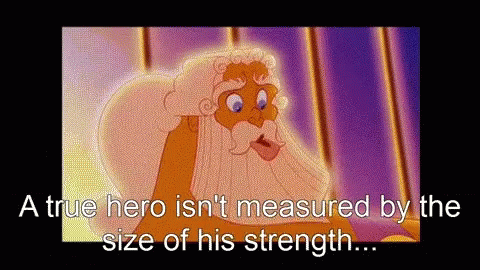
In looking at your life, can you unequivocally say that pursuing your goals makes you happy? If not, it’s time to redefine what success means to you. Success lies in the process of creation and discovery, not in the potential side-effects of money or praise. There’s nothing wrong with wanting to climb the proverbial ladder of success – the problem lies in how we relate to it. Consider other perspectives and the different types of success to create a definition that feels right and is worthy of your time, effort, and emotions. (Estimated reading time: 8 minutes)
“Success is liking yourself, liking what you do, and liking how you do it.”
— Maya Angelou
Success has become a loaded word. Not only is it used excessively in the personal growth arena, but advertisers also wield it to entice people to purchase their goods.
“Buy our cream, and you’ll look ten years younger.” (Success is looking young and beautiful).
“Invest in crypto, and you’ll be a millionaire.” (Success is being wealthy).
“Purchase our club membership, and you’ll rub shoulders with big names.” (Success is having status and high-profile connections).
There’s nothing wrong with wanting to climb the proverbial ladder of success. Accomplishments in the material world are worthy pursuits worth striving for. The problem lies in how we relate to them.
Before we set our sights on anything, we need to get clear about our intentions and understand how it relates to the big picture of our lives. When we choose the wrong criteria for success, we defeat the purpose of becoming successful.
We become hungry ghosts — creatures with large empty bellies and small, thin necks from Buddhist cosmology. They’re always hungry and riddled with powerful desires they can never satisfy.
To avoid getting sucked into the baseless pursuit of success and setting yourself up for a midlife crisis, we must remove our myopic views on what it means to be successful and embrace other definitions.
Learning about the different types of success how to focus on the right definition for success may require trial and error, and excavation for our personal truth, but it’s a small price to pay for the happiness and fulfillment it will ultimately bring.
Why does society’s definition of success mess us up?

In early 1984, Epic records dispatched another semi-truck from the warehouse with yet another load of Michael Jackson’s “Thriller.” The record was shattering expectations since its release in late 1982. Epic was selling over one million copies per month in the U.S. alone.
“Thriller” still stands as the best-selling studio album of all time in the United States and has sold more than 50 million copies worldwide. This was the pinnacle of Michael Jackson’s career and etched his name in music history.
The success of “Thriller” was daunting for Jackson. It was a phenomenon that was incredibly difficult to replicate, even by the best in the industry. He spent the rest of his life trying to repeat it and used “Thriller’s” success as a benchmark for his effectiveness as an artist.
Many people speculate that this burning desire consumed him, leaving him dissatisfied with anything he did. Jackson once said, “I’m never satisfied with anything ‘cause I do believe deeply in perfection. If you’re satisfied with everything, you’re just going to stay at one level and the world will move ahead.”
Think about that: arguably one of the most talented entertainers who won countless accolades and praise could not take it in and own what he achieved – all because he was fixated on what he thought would make him genuinely successful, i.e., surpassing “Thriller.”
Jackson’s preoccupation with quantifying his success reflects our quantified society. Capitalism puts numbers on people to determine their worth: grades, salary, net worth, waistline, likes, followers, square footage, etc. The more favorably a person scores on these scales, the higher they’re placed in society.
The fallout of buying into a quantified perspective on success is:
1. A tendency to view life as a competition: The fear-based belief that “I cannot win unless others lose” makes us ruthless, cold, and willing to do anything to one-up our perceived competitors. Instead of viewing others as fellow humans, we see them as threats.
2. Basing our worth on the opinions of others: When this happens, success lies outside of our control. It means our perception of success depends on others’ validation – without it, we’ve fallen short, or worse, are failures.
3. Believing that success can only happen through the right opportunities and connections: Unfortunately, some studies support this notion. They show that the most talented people are rarely the most successful ones. Other critical factors go into success, including timing, circumstances, and meeting the right people at the right time.
4. Killing our natural desire to play, experiment, learn, and explore: To get ahead in life, we sacrifice our time, relationships, and doing things for pleasure. We somehow believe that getting off the capitalism treadmill will slow us down and make us fall behind.
When you consider the social conditioning we’re exposed to, it’s no wonder why so many of us can’t be happy with our accomplishments. I’m not saying that the external realities of capitalism do not exist – refuting them would be naïve and delusional.
Instead, we need to become aware of its impact on how we perceive ourselves and the world. Are we too tied to proving ourselves that we can no longer find joy beyond the confines of a power-hungry society?
Redefining success: an alternative view that will make us happier

Not too long ago, I found myself hung up on the performance of my blog, podcast, and social media platforms. I was looking at stats that show the number of viewers and interactions with the material I put out.
While this is standard practice for any content producer, what didn’t feel normal was how it made me feel. Whenever there was a dip in performance or I got negative feedback, I took it personally.
I soon realized that I had forgotten why I was doing what I do in the first place: to find an outlet to express my thoughts and help others in the process. I had been sucked into the influencer culture and lost sight of my North Star that guided me toward higher-minded goals.
In looking at your life, can you unequivocally say that pursuing your goals makes you happy? Are you excited, stimulated, and creatively inspired by them? Or are you tense, insecure, and plagued by feelings of inadequacy and fear?
If it’s the latter, it’s time to redefine what success means to you and consider different types of success. Here are eight healthier ways to view success:
1. How far you’ve come thus far: Look at your past accomplishments and give yourself a pat on the back for the work and discipline you demonstrated.
2. Your personal growth: How much you’ve learned and improved as a person because of the books you’ve read, podcasts you listened to, courses you’ve taken, and the people who have counseled you.
3. Challenges and obstacles you’ve overcome: The resilience and problem-solving skills you use when dealing with difficulties, and your ability to bounce back from disappointment and failure.
4. Your maturity and emotional intelligence: Your ability to distill wisdom from your experiences and use it to make better decisions and enhance your perspective.
5. Kindness and contribution: All the acts of kindness, big or small, you did to brighten someone’s day. The contributions you made to your workplace, community, or the world made a difference in the lives of others.
6. The chances you’ve taken and your adaptability: You have stepped outside your comfort zone and taken a chance on something or someone. You weren’t afraid of the unknown because of your ability to adapt and face whatever comes your way.
7. Honesty and integrity: Your willingness to stick to the truth and be honest in your dealings. Making ethical decisions that are in integrity with what you believe in.
8. Humility: Feeling successful without the need to overpromote and exaggerate your wins. Showing grace, humility, and gratitude for any accomplishment.
These are intrinsic motivators of success. Extrinsic rewards such as money, adulation, and accolades can motivate us to perform better. However, when it comes to personal satisfaction and meaning, intrinsic motivators are more effective and result in better performance.
The different types of success and how to focus on the right ones

Now that you have new metrics to measure success that aren’t based on society’s criteria, the next step is to personalize your definition. Success looks different to everyone, so it’s essential to get clear on what success looks like for you.
Here are a few questions you can ask yourself about different types of success:
- What do I value?
- What are my core needs that should be met?
- What makes me truly happy?
- What does a perfect life look like to me?
- What accomplishments would make me proud?
In addition to these responses, you can explore success in the context of different life areas. In his book, “Born to Win,” the late Zig Ziglar stated that success cannot be defined in one sentence, but instead, it’s composed of many parts that make up a whole and balanced life.
Consider each of these eight sectors that are the focus for most people and identify which ones of these different types of success are more important to you at this stage in your life:
1. Intellectual success: How much you’re learning and how mentally stimulated and challenged you feel.
2. Emotional success: How you feel on a daily basis. How you handle your emotions and respond to the world around you.
3. Physical success: The state of your health. How your body feels and how you feel about your body.
4. Spiritual success: How content you feel about your spiritual life. How connected you feel to your purpose and a higher power.
5. Material success: How you feel about your finances, the material things you own, and what you can buy (cars, homes, clothes, jewelry, vacations, etc.).
6. Professional success: How you feel about your career, whether that’s a job you work for or a business you own. Are you happy with your growth, compensation, and your work’s impact on others?
7. Social success: Your satisfaction with your network of friends, colleagues, and the connections that you have built. Do you have mutually beneficial exchanges with them?
8. Contribution success: Your awareness and participation in public discourse and your sensitivity to the problems in your community, country, and the world, as well as your efforts to be part of the change.
Which of these life areas you focus on depends on various factors like your goals, preferences, age, life stage, circumstances, culture, and personality type. One size does not fit all, and our picture of success will evolve throughout our lives. That’s why it’s important to consider different types of success.
There is no single right way to be successful. Others may not always understand your perfect combination of ingredients, and that’s okay. Focus on devoting yourself to what matters most to you. You’ll improve your chances of success in whatever happens to be close to your heart.
All my best on your journey,
Seline

Question for you: What does success look like to you? Which of the different types of success are a priority to you right now?
Did you like this post? Sign up below, and I’ll send you more awesome posts like this every week.

This article was particularly relevant to me right now! You succinctly put into words why I was feeling very grateful for where I am right now. Even though my current life might not appear “successful” through someone else’s eyes/standards/perspective, I am feeling content these days. I feel I have reached a milestone of success – for me! I am mostly doing what I want (modest, but comfortable IMHO), mostly with who I want to be with, mostly when I want. I have a great part-time work situation, and I have more time than ever to read, relax, contemplate, talk on the phone with others, and read enlightening articles like this one! Thank you!
Thank you for sharing Mindy. Glad to here that it helped validate your choices!
Agree 100%! Defining success is so difficult because it really does depend on what guidelines you are applying. There are so many factors that can change how that works that is almost becomes impossible in some cases to apply ‘success; evenly across the board!
I swear you’re reading my life! 🙂 It seems like every post you make hits home because it’s something I’m trying to learn or struggling with. This past weekend I’ve had to deliberately recite the things in my life that I’m grateful for because all I could focus on are the areas where I think I’m lacking. I keep thinking I should have “this” or at this point, I should be doing “that” and fail to acknowledge my growth in other nonmaterial areas. I appreciate what you’ve shared and will hold on to it.
Perhaps I am. 🙂 Glad to know you connected with this piece as well. I appreciate your support Lou-Ann!